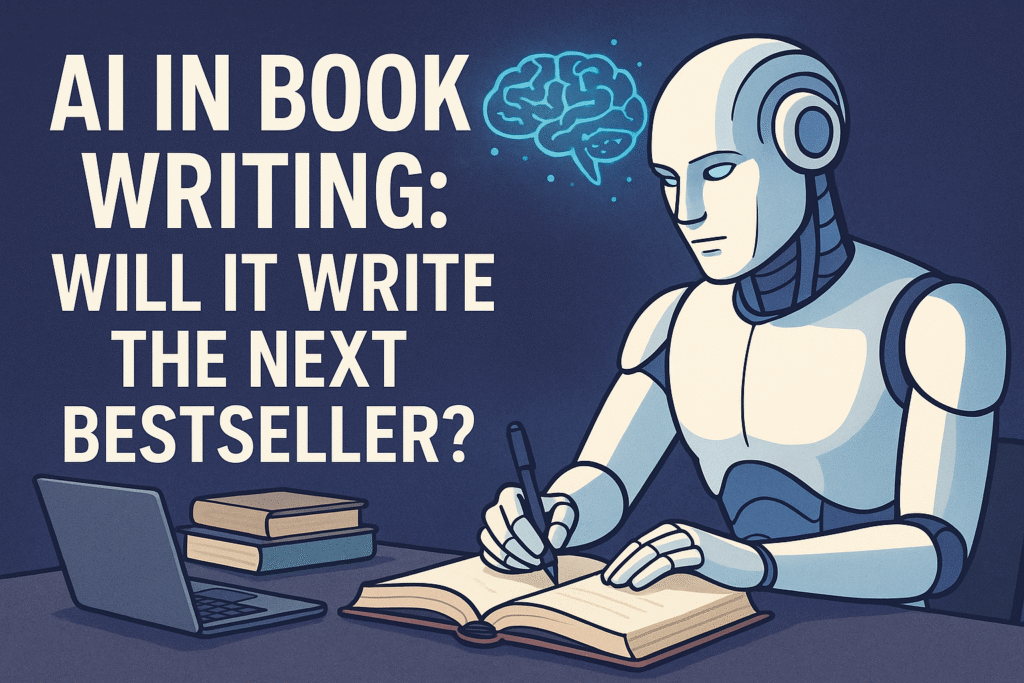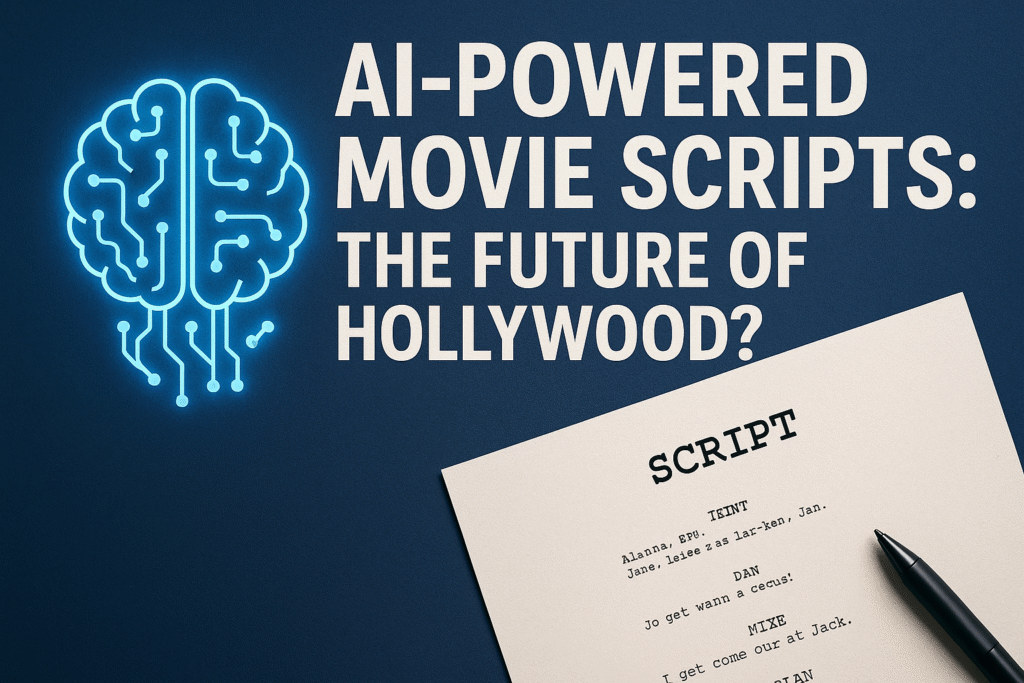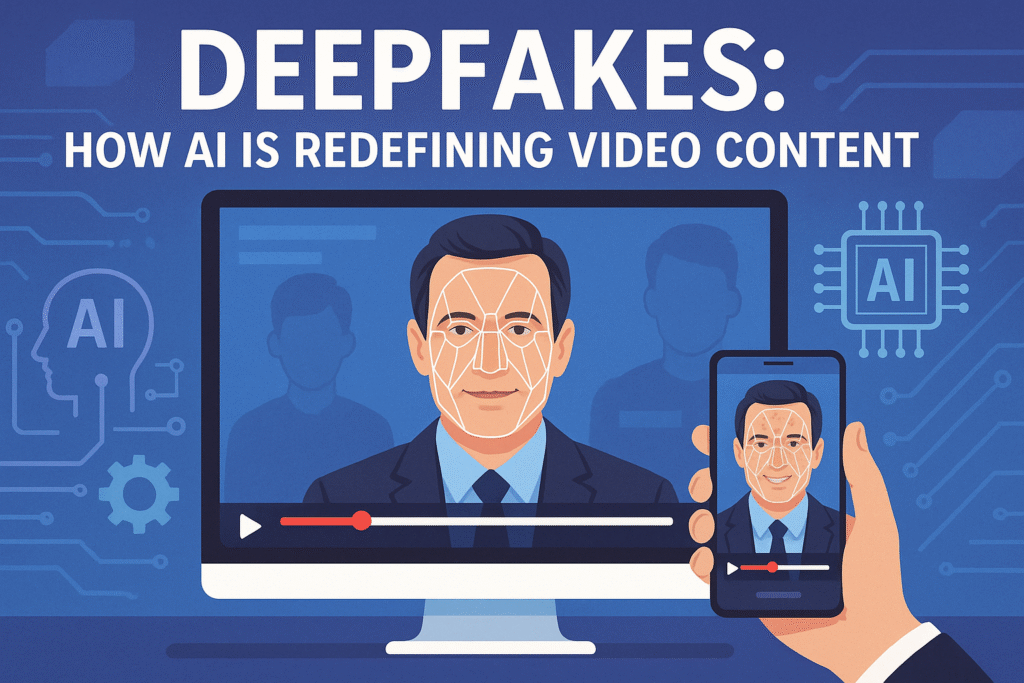✍️ AI in Book Writing: Will It Write the Next Bestseller?
The literary world is no stranger to technological innovations, but in 2025, AI in book writing is quickly becoming a major player. From plot generation to character development and even full-length novel writing, AI is being used in ways that were previously unimaginable.
At AiBlogQuest.com, we delve into the role of AI in the writing process and explore whether it has the potential to write the next bestseller.
🧠 How AI is Transforming Book Writing
AI has made huge strides in natural language processing and creative writing. Here’s how AI in book writing is shaping the future of literature:
1. Plot and Storyline Generation
AI tools like GPT-3 and Sudowrite can help authors generate ideas and plot structures for their novels. By analyzing existing literature, these AI tools can create a detailed outline of a story, suggesting potential plot twists, conflicts, and resolutions. This allows authors to break through writer’s block and explore new storylines they may not have thought of on their own.
2. Character Development
AI in book writing can also assist in character creation. By analyzing existing character archetypes, AI can suggest unique traits, motivations, and backstories for characters. Some AI tools even allow authors to input specific details about a character, and the AI will generate dialogue and interactions that align with the character’s personality.
3. Content Expansion
For authors working on long-form content, AI can assist in expanding a narrative. If an author has a rough draft or outline, AI can help flesh out the details, ensuring the story stays engaging and consistent throughout. AI can also help in improving sentence structure and ensuring readability, making the writing process smoother.
4. Personalized Writing Assistance
AI tools aren’t just limited to writing full books. They can also act as personalized writing assistants, offering suggestions for improving grammar, style, and tone. Some AI tools provide real-time feedback on how a piece of writing might be received by different audiences, helping authors adjust their work accordingly.
🎯 Benefits of AI in Book Writing
✅ Enhanced Creativity: AI tools can spark new ideas and break creative blocks by suggesting storylines, characters, and plot twists that authors may not have considered.
✅ Faster Writing Process: AI can help authors write faster by generating content ideas, drafting sections, or refining existing work, allowing for quicker turnaround times.
✅ Improved Writing Quality: With AI offering suggestions on grammar, structure, and readability, authors can improve the overall quality of their writing, making it more polished and professional.
✅ Personalized Feedback: AI can analyze and provide feedback on writing style, helping authors tailor their work to their intended audience or desired tone.
⚠️ Challenges and Concerns with AI in Book Writing
While AI in book writing brings many advantages, there are some challenges and concerns to consider:
❌ Loss of Authenticity: AI-written content may lack the personal touch and emotional depth that comes from a human author’s experiences and emotions.
❌ Ethical Concerns: As AI tools generate stories and characters based on existing literature, there are concerns about copyright infringement and whether AI-generated content is truly original.
❌ Over-reliance on Technology: Writers may become too dependent on AI, potentially stifling their own creativity and diminishing their personal growth as authors.
🌐 The Future of AI-Generated Bestsellers
Can AI write the next bestseller? While AI tools are improving at a rapid pace, the answer is still uncertain. AI can certainly assist in the writing process, offering valuable suggestions and breaking down creative barriers. However, the human element remains crucial in creating truly impactful and deeply emotional stories.
AI-generated books may become popular, but it’s still likely that the most successful and beloved books will come from human authors who use AI as a tool to enhance their creativity, not replace it. That being said, AI’s role in the literary world is only going to grow, and it will be fascinating to see how it continues to shape the future of book writing.
🔗 Useful Links
🌐 Resources
❓ FAQ – AI in Book Writing
Q1: Can AI write an entire book?
Yes, AI can write an entire book by generating text, dialogue, and plotlines. However, the final product may still need human intervention for emotional depth, authenticity, and refinement.
Q2: Is AI capable of writing a bestseller?
While AI can assist with writing, creating a bestseller still requires human creativity, emotional intelligence, and storytelling expertise. AI can help authors write faster and more efficiently, but it’s unlikely to fully replace human authors.
Q3: Can AI create unique characters?
Yes, AI can suggest character traits, backstories, and dialogue based on existing data, but truly unique and original characters still come from the imagination and experiences of human writers.
📚 Final Thoughts
AI in book writing is an exciting development that has the potential to revolutionize the writing process. While AI can generate plotlines, suggest character traits, and refine content, it still requires a human touch to create truly meaningful and emotionally impactful stories. AI’s role in the future of book writing will likely be as an assistive tool, helping authors to enhance their creative output rather than replace them entirely.
For more insights into how AI is transforming the world of content creation, visit AiBlogQuest.com, where technology meets creativity.
🏷️ Tags:
AI in Book Writing, AI for Writers, AI Storytelling, Writing Tools, AI-Generated Content, Creative Writing, AI and Literature, Artificial Intelligence in Writing, AiBlogQuest



